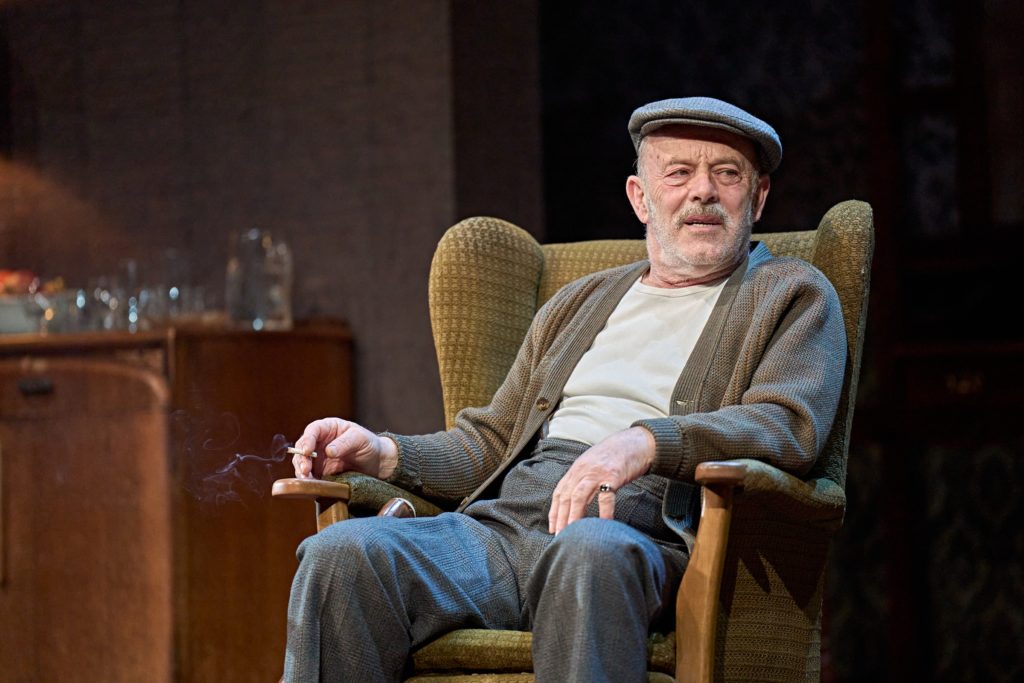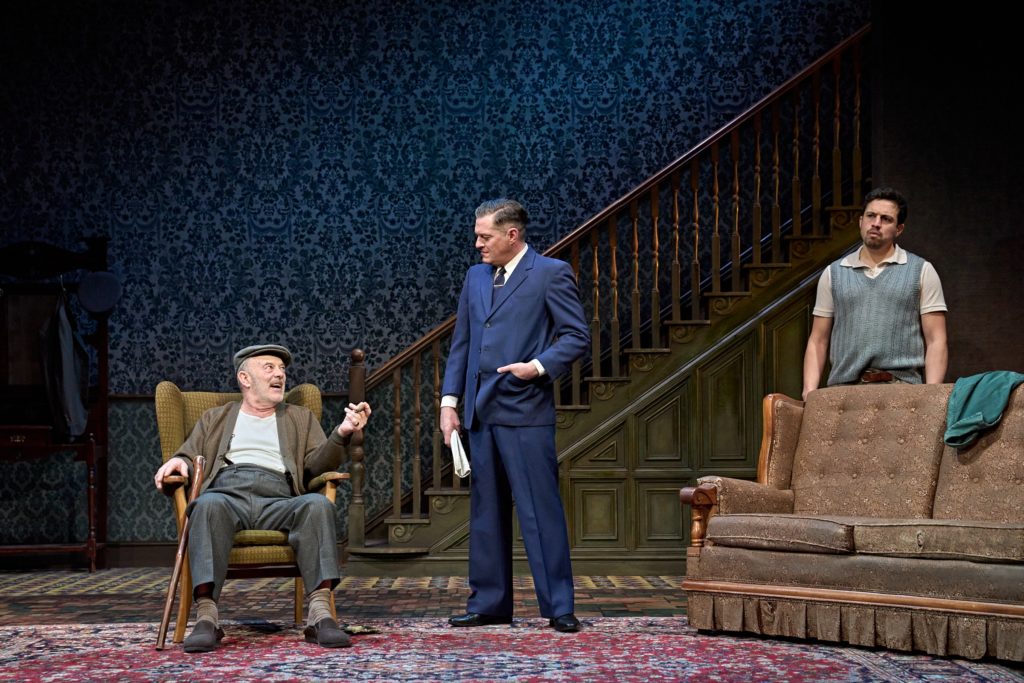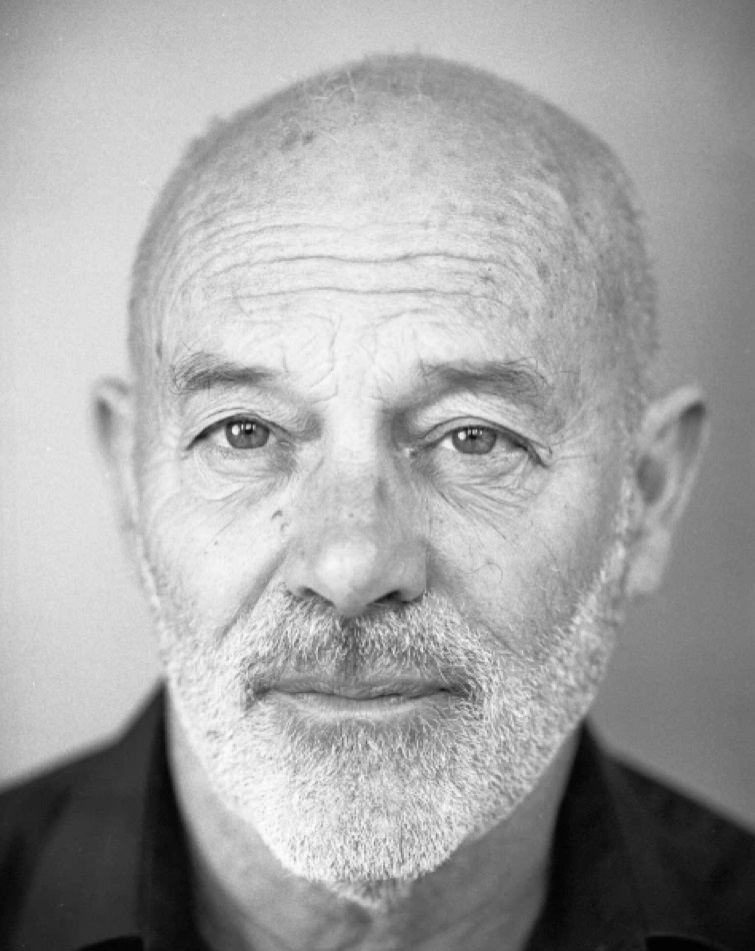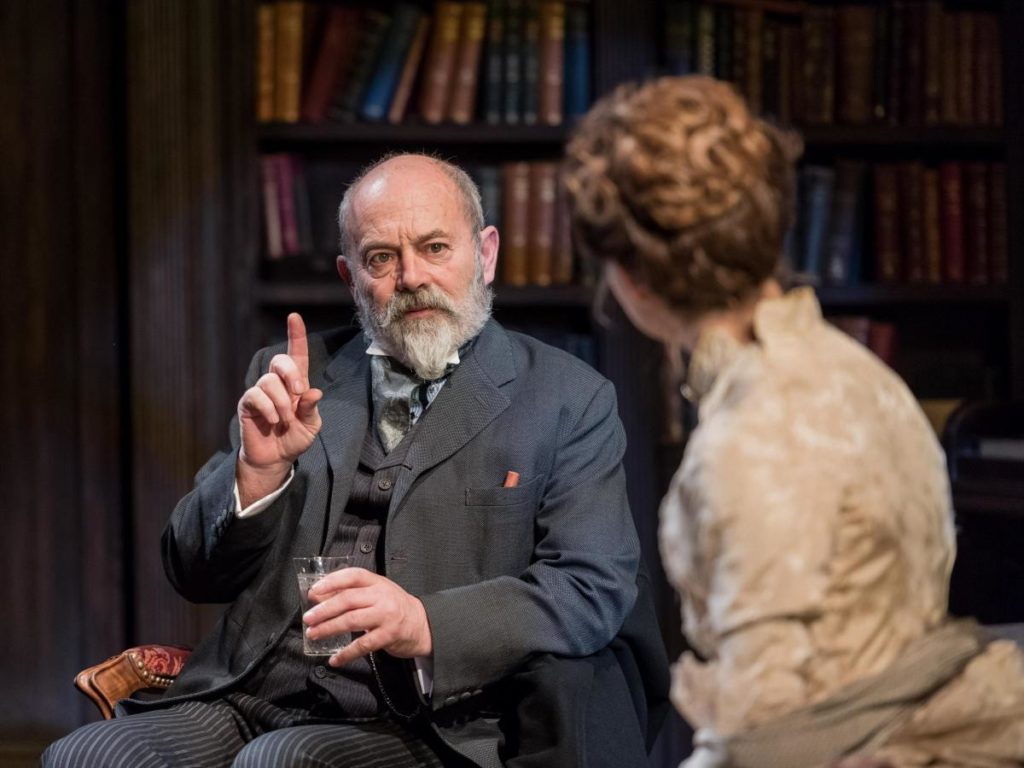
KEITH Allen is completing a hattrick of roles spread over 25 years in Harold Pinter’s darkly comic power struggle The Homecoming, on tour at York Theatre Royal from tonight.
At the National Theatre, in 1997, the Welsh actor, comedian, television presenter, documentary maker and rousing punk musician played university professor Teddy, returning from America with his wife Ruth to find his two brothers, Joey and Lenny, and elderly father Max still living at their North London family home.
In 2015, at the Trafalgar Studios, London, he was cast as Uncle Sam. “Now I’m playing Max but that’s as far as I can go because I’m too old to play Joey or Lenny,” says Keith, 68. “Max is the patriarch of a very misogynistic household. Every character is repressed to the nth degree but while most of them repress their rage Max doesn’t.
“He had a very interesting relationship with his now-dead wife that has coloured his whole life and he’s in a household where they’re all playing games and trying to top each other. Everything that’s done is for a reason and it’s usually to get one over on someone else.”
Keith compares former butcher Max to a raging sheep: “If you’ve ever been in a field with a very angry tup, you don’t want to be there. I’ve been there and they don’t back down.”
Director Jamie Glover and actor Mathew Horne, who is playing pimp Lenny, always had Allen in mind for their Pinter project “They’re close mates, and the genesis of the idea to do a Pinter play came from them. They took their idea to Danny Moar at [the Theatre Royal] Bath, originally wanting to do The Caretaker, but the Pinter estate offered the rights to The Homecoming instead.”
Glover and Horne were unsure whether Allen would want to return to Pinter’s 1965 fractured family drama, but “Max is a part I’ve always had my eye on,” says Keith. “I was very lucky to be offered it and I’m very pleased to be doing it.”
After all, The Homecoming is considered to be Pinter’s finest work in its exploration of toxic masculinity, stultifying patriarchy, one-upmanship feuds and sexual powerplays. “I’ve always thought Pinter was a poet before he was a playwright and the poetry is amazing. This whole play is about language and very particular choices of words, which is why as an actor you have to be very on-the-ball about the grammar.

“I think the lyricism of the play is extraordinarily attractive and the tension has people constantly going, ‘What on earth is happening and what’s going to happen next?’.”
Keith praises not only the writing, but the “brilliant structure” too, describing it as a feat of engineering. “As an actor, you just get your skis on and let the skis guide you,” says the skiing enthusiast.
What does Keith recall of his first performance in The Homecoming? “That was in 1997, directed by Roger Michell, who died last September, bless him. I remember feeling I’d let the cast down in rehearsals, as I would forget my lines, make things up and trip my way through it, playing Teddy to Lindsay Duncan’s Ruth.
“But I got a handle on it in the end, and it was a brilliant way to learn about being still on stage, which is a great skill to master, when a lot of actors get scared if they’re not doing anything.”
Comparing the productions, Keith says: “I have to say that all three have had very different qualities. This one is very funny, much funnier than the other two, because the director chose that path. Jamie Lloyd’s production in 2015 was much bleaker; this one is genuinely funny but also very discerning.
“A hefty contributory factor to that humour is that these men are idiots. They’re fantasists, all trying to be top dog, and that’s funny to watch.”
Assessing The Homecoming’s impact on audiences in 2022, by comparison with 1965, Keith says: “Misogyny is very present in the play, as is generational jealousy within a family. The mother is dead but she looms very large in everyone’s memory, especially Max’s because he loathed her.
“When the play was first performed, I don’t think anyone had seen anything quite so vicious and measured before. Now it’s interesting for different reasons because we’re living in a time where women are becoming far more recognised and are on a far more equal footing.

“There are things in the play that could be misconstrued as being abusive to women and, because of the times we’re living in, audiences might react very quickly to certain things which they wouldn’t necessarily have reacted to before.”
Keith has “previous” for Pinter, not only appearing in The Homecoming but also in Pinter 3: Landscape/A Kind Of Alaska in the West End and The Celebration and The Room, both directed by Pinter himself at the Almeida Theatre, London, in 2000 and in New York in 2001.
“You very quickly realised that Harold chose people for what they could do; he was very careful in his casting,” Keith recalls. “He wouldn’t ask you to act a part, but to ‘be’, so he left you alone and watched.”
As for Pinter’s advice on his notorious use of pauses, “he once quite frivolously said to us, ‘if the pauses don’t work, **** it’, but actually they do work,” says Keith. “It works like a musical score in that what comes before dictates what comes after. It’s all about rhythm.”
After a five-year hiatus, Keith will enjoy his return to York, where he was last seen on stage as Inspector Rough in Patrick Hamilton’s thriller Gaslight at the Grand Opera House in February 2017. ” York is lovely because you’re near the river and there are some lovely pubs,” he says.
“I really like touring. I like the fact that you’re on the move and it’s as if you’re having an opening night every week because you’re in a different space, in a different theatre, with a different ambience.
” I like to fit in some golf wherever I go and I have an ingrained curiosity about corrugated iron chapels and buildings, so I always see if I can find one or two to go and have a look at.”
Theatre Royal, Bath, presents Harold Pinter’s The Homecoming, York Theatre Royal, tonight until Saturday; 7.30pm, plus 2pm, Thursday; 2.30pm, . Box office: 01904 623568 or at yorktheatreroyal.co.uk

